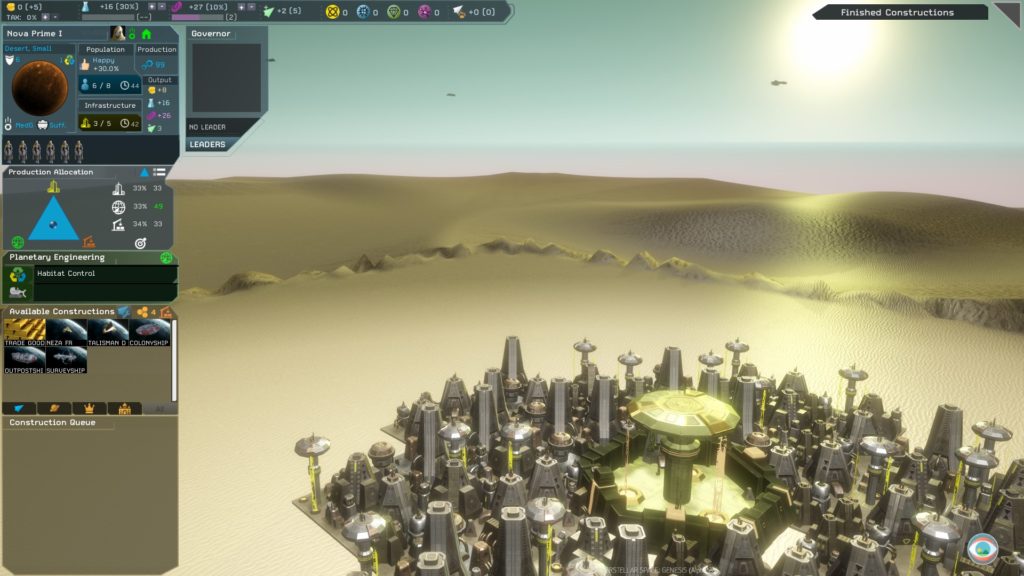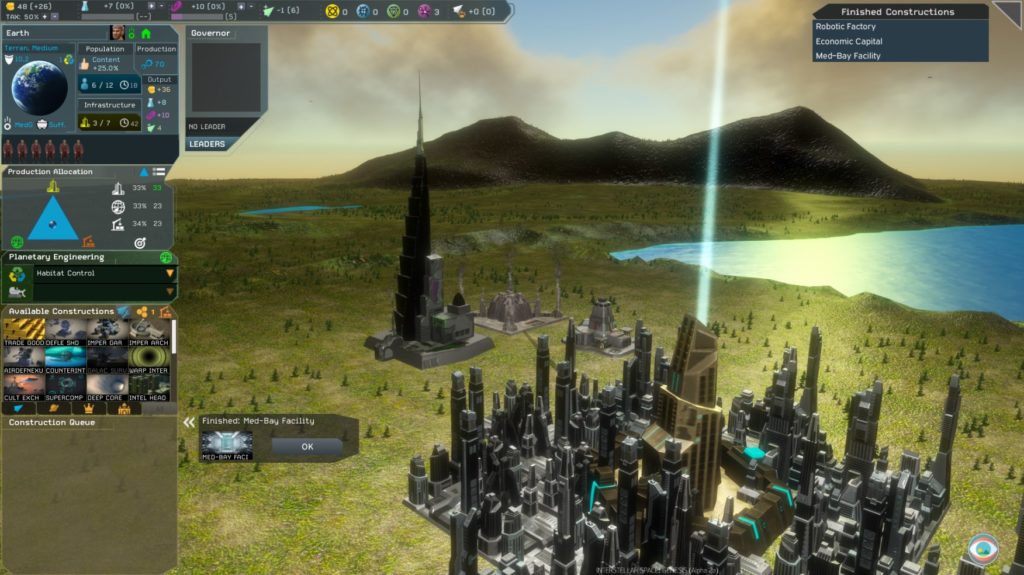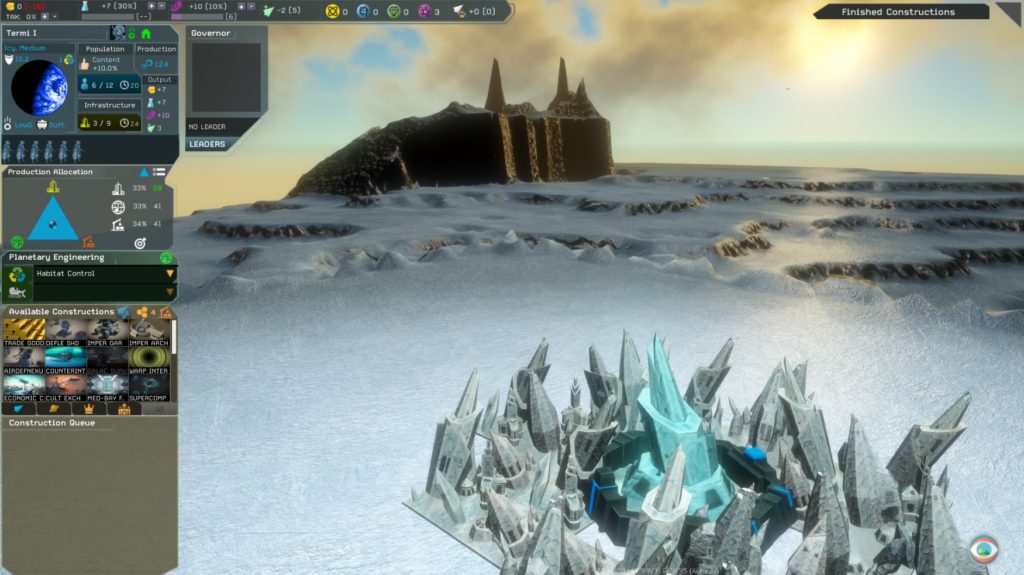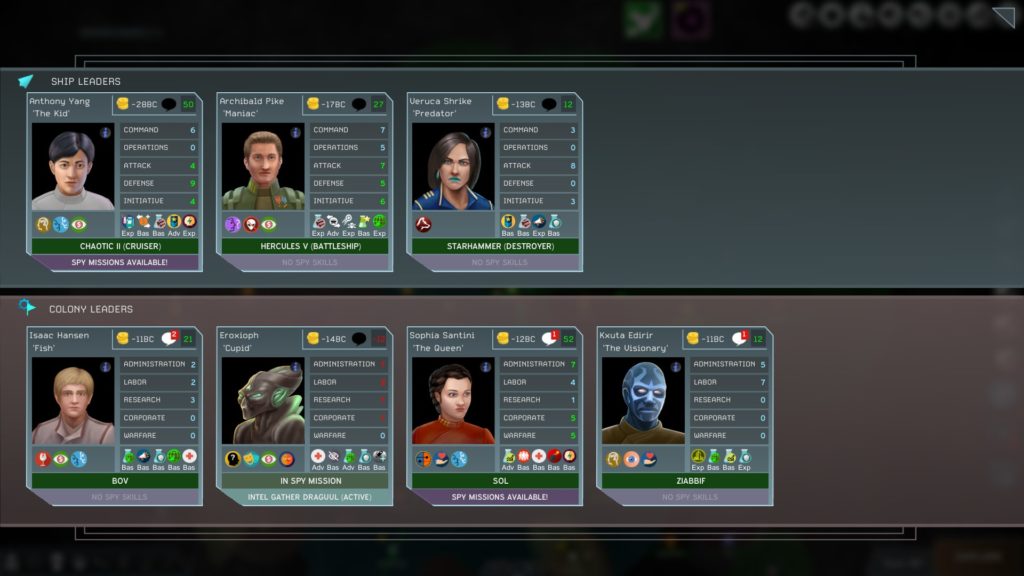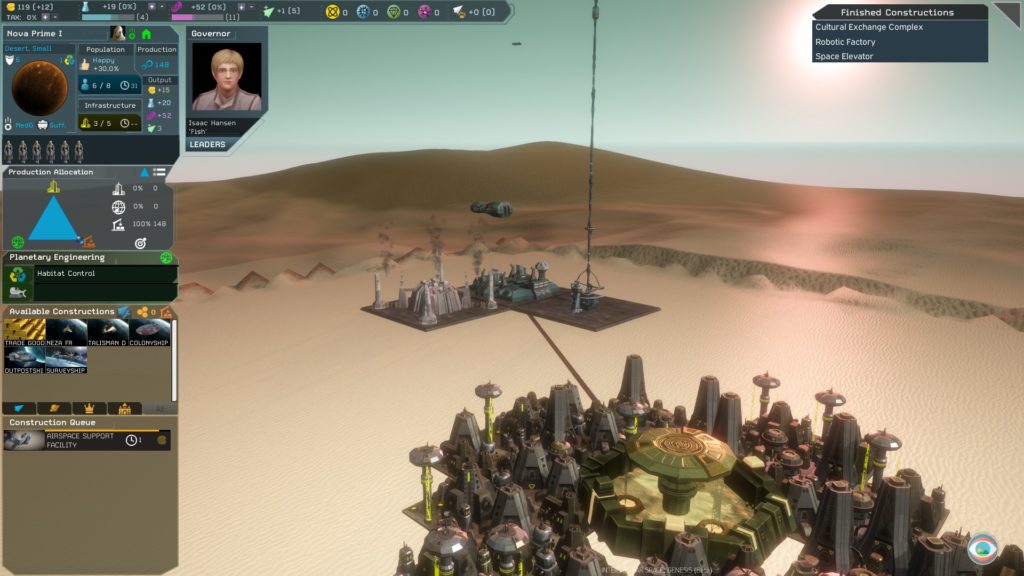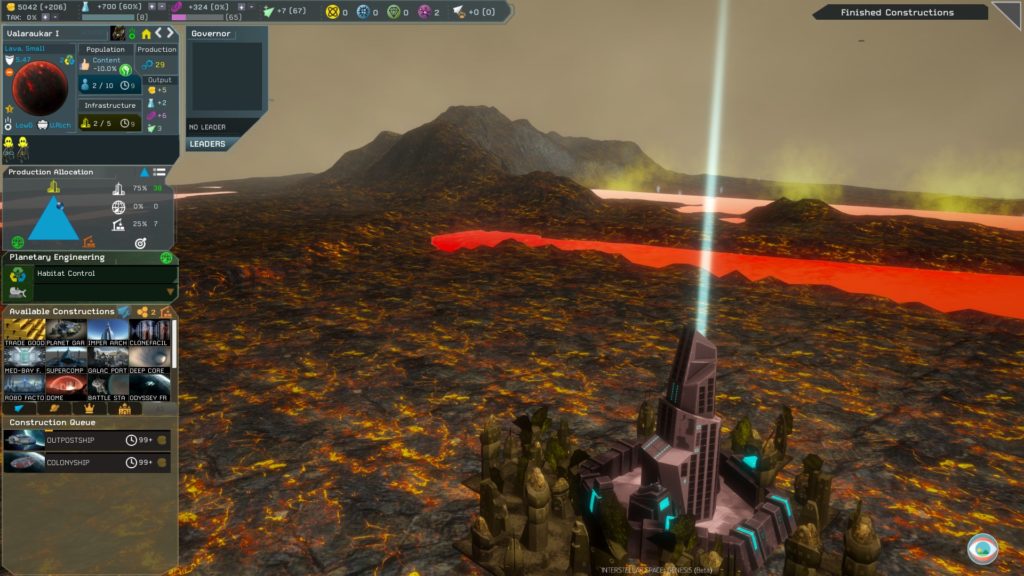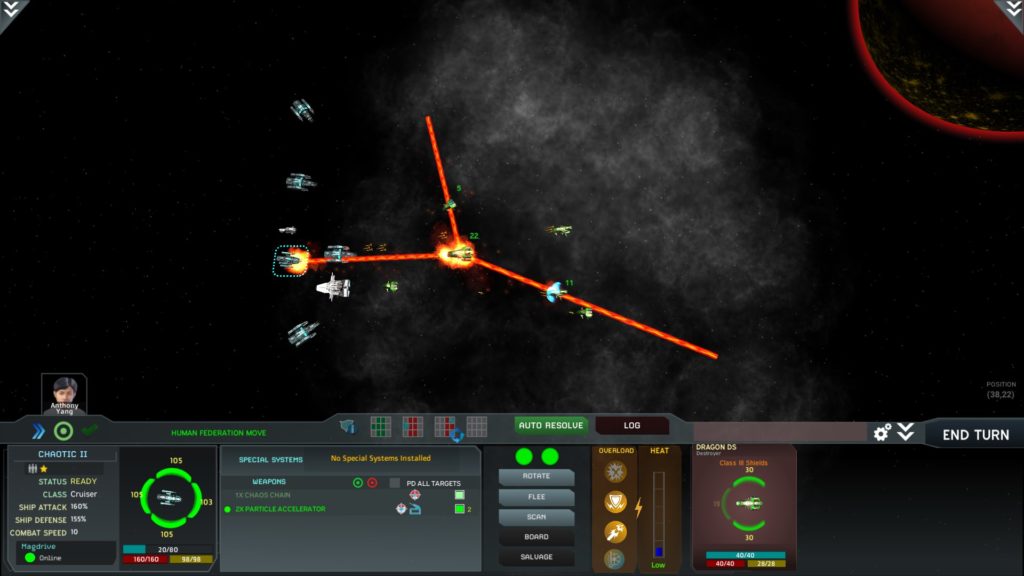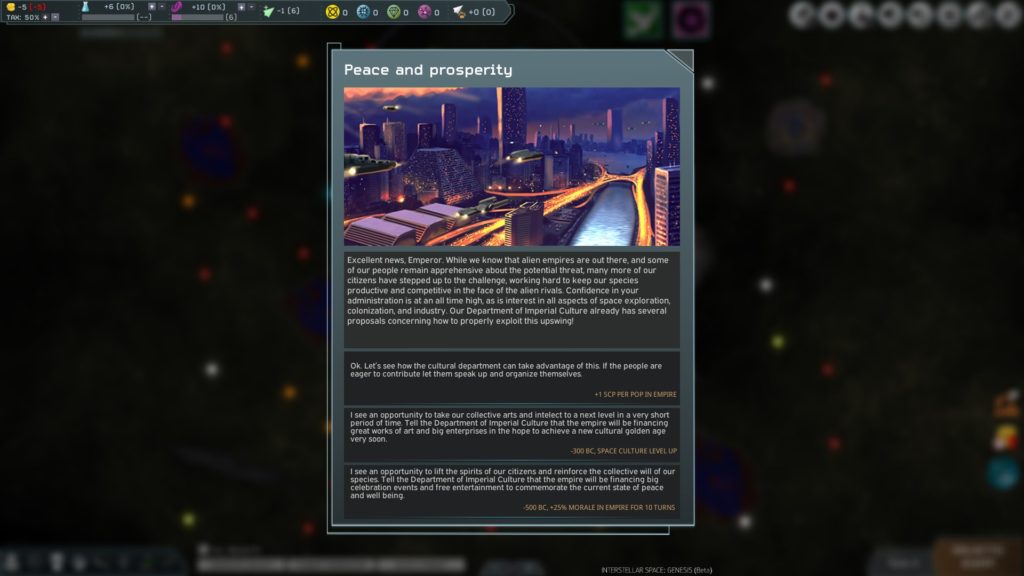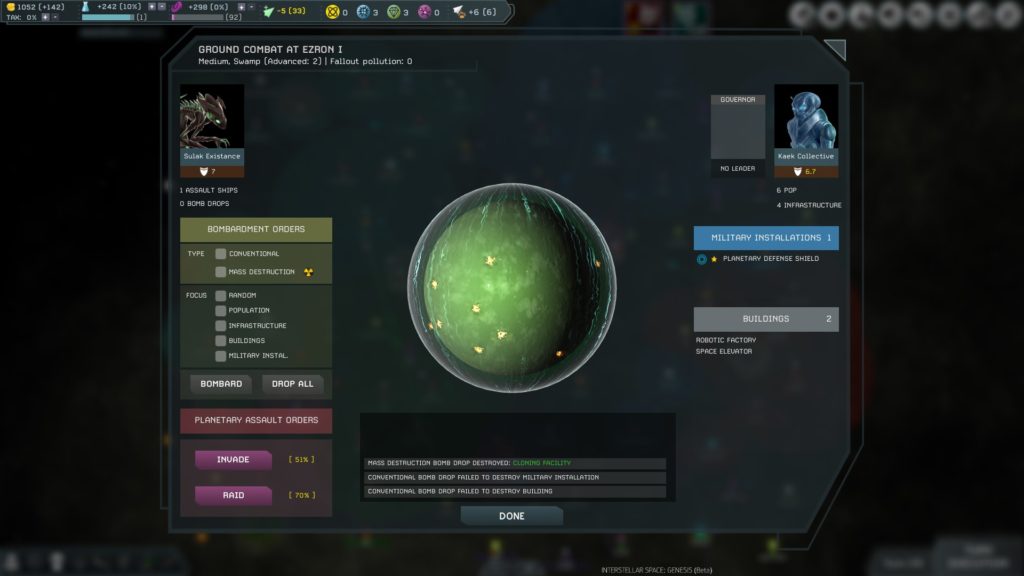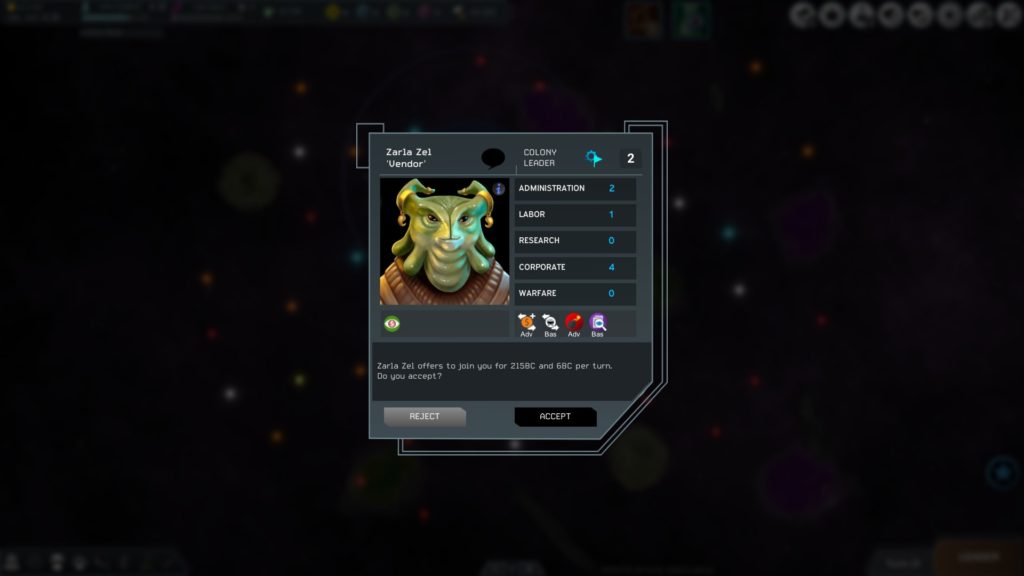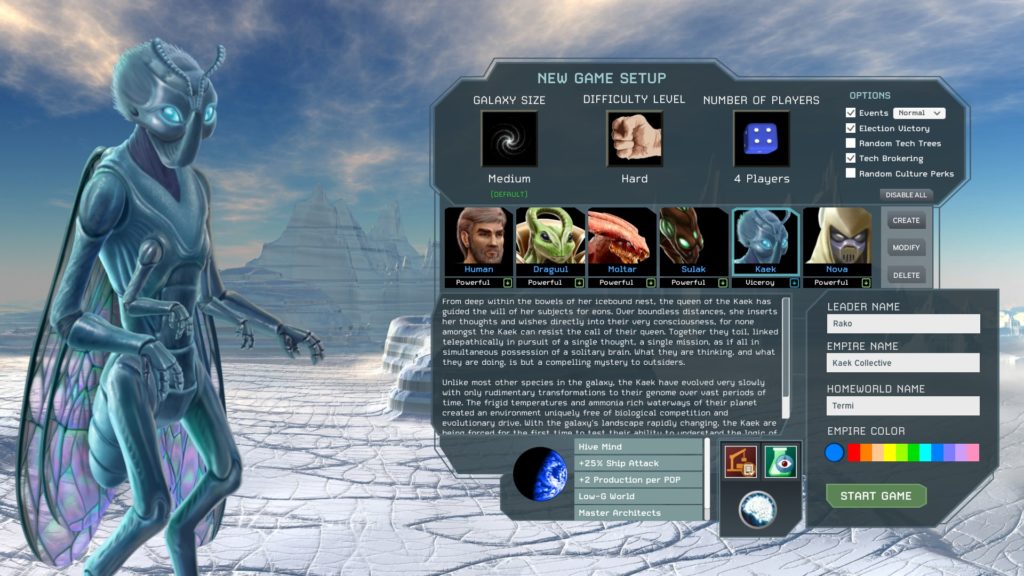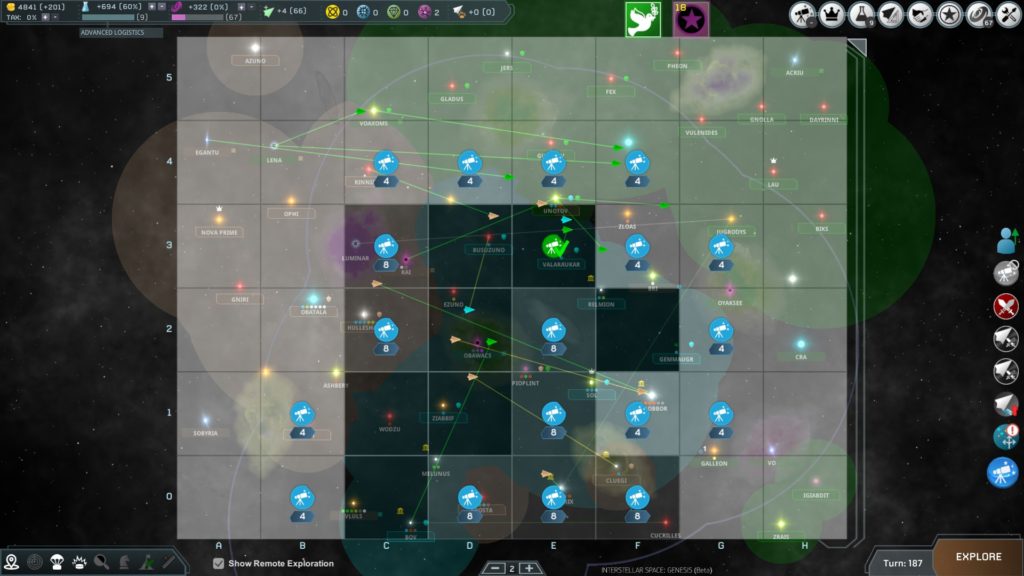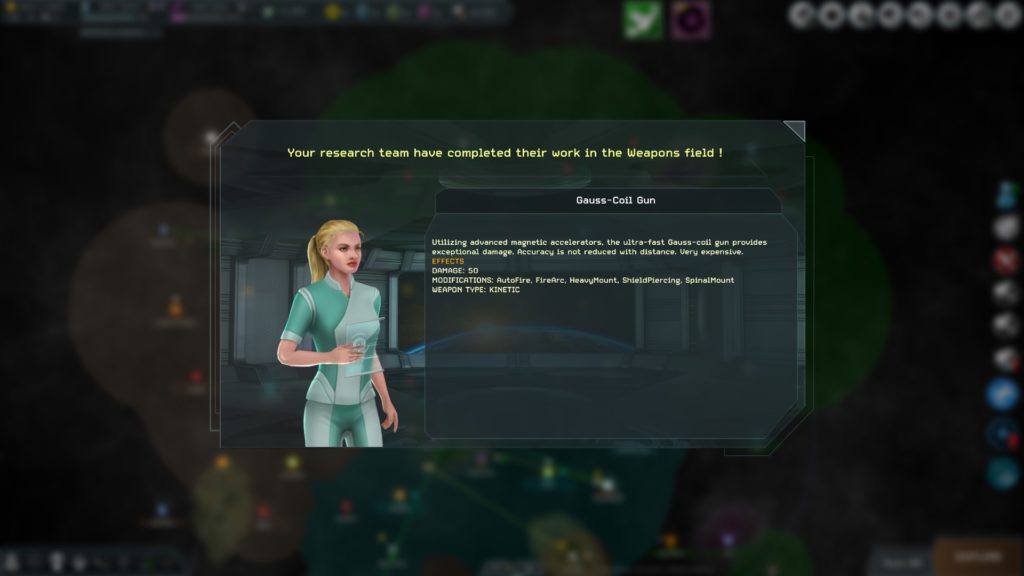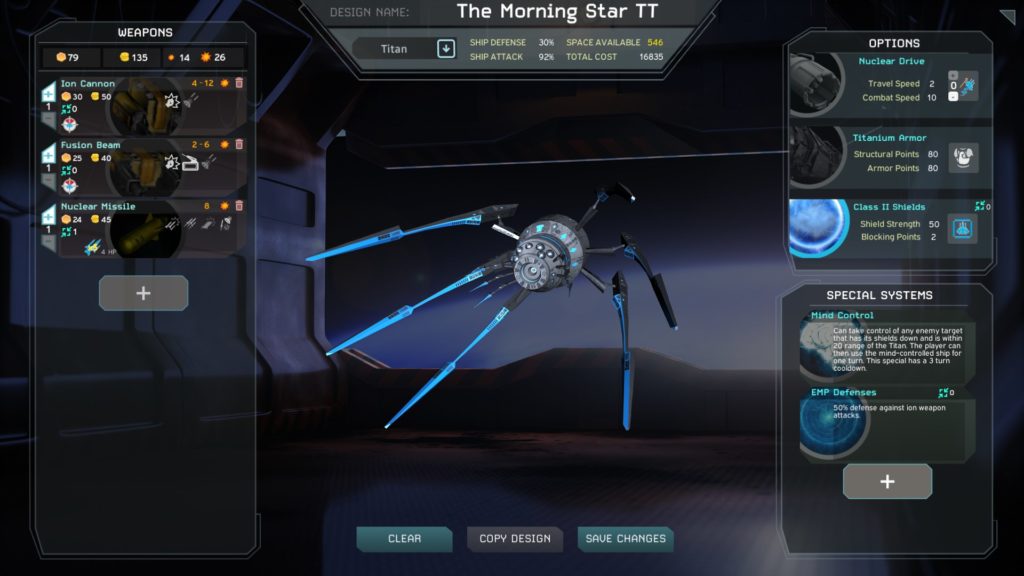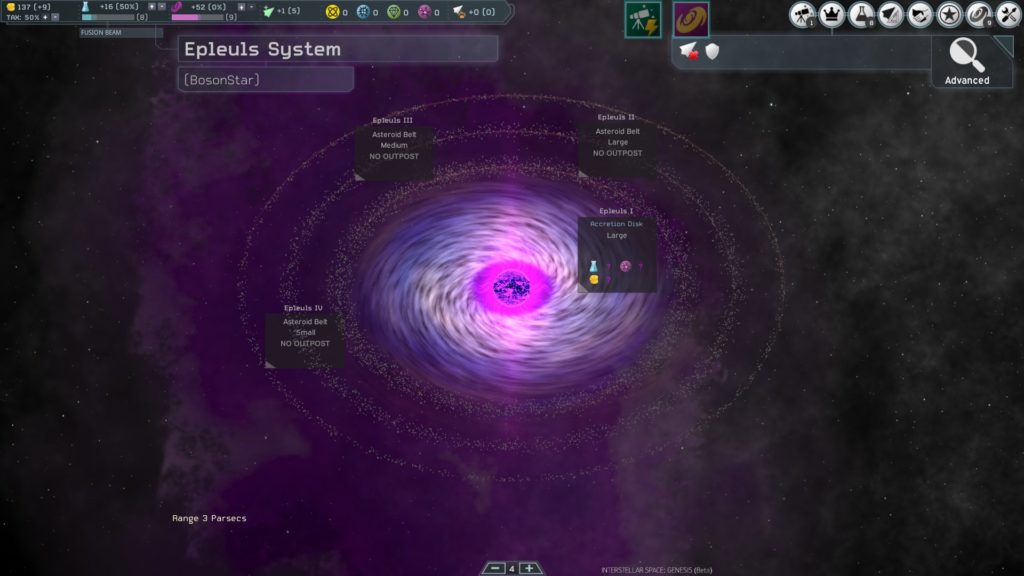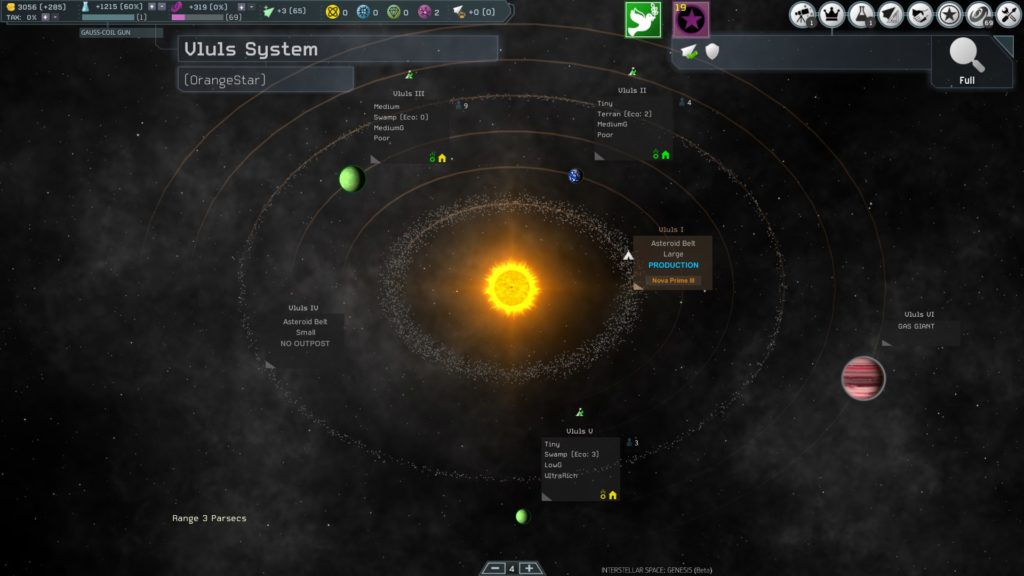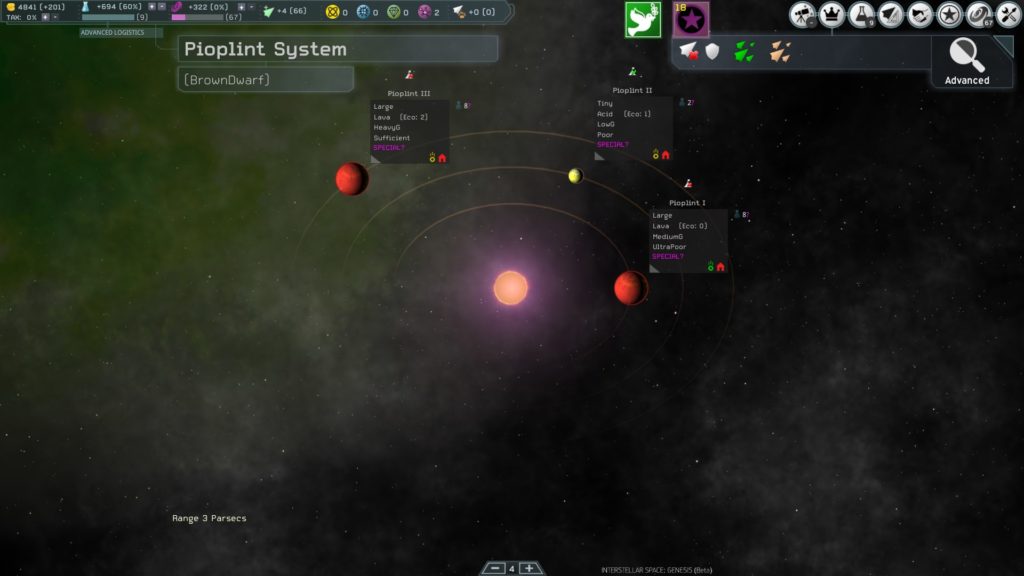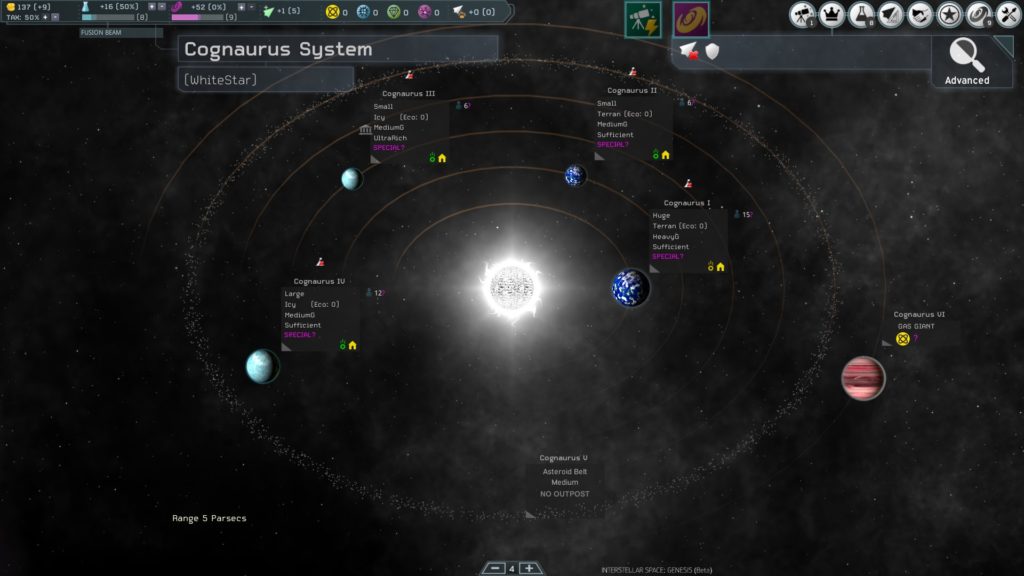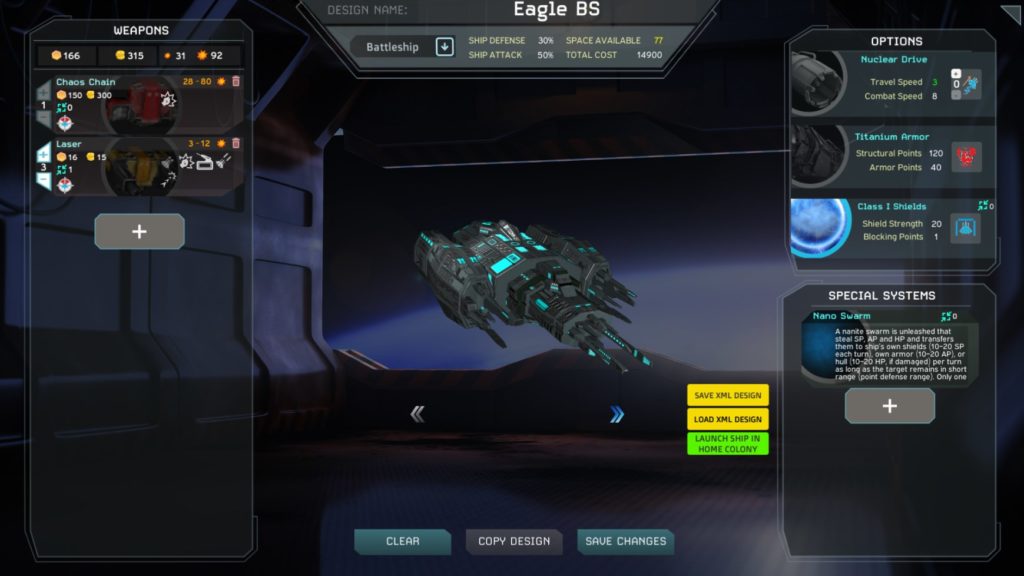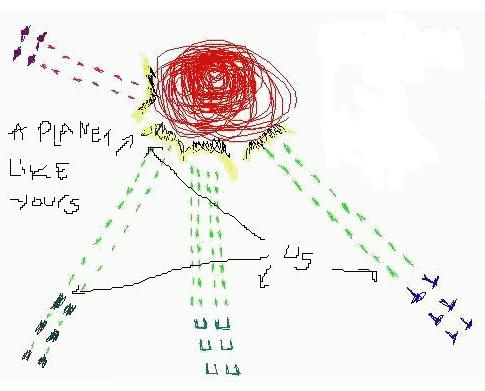Developer/Publisher: Praxis Games || Overall: 8.5/10
“4X” games always take a while to digest. Before realizing it was a whole genre unto itself with a fancy name, I used to refer to these games as “like Sid Meier’s Civilization.” While Interstellar Space: Genesis isn’t unlike Civilization, it definitely stands on its own with a couple of interesting game systems in regards to combat.
The goal of the genre is to eXplore, eXpand, eXploit, and eXterminate; that’s where the “4X” comes from. These games typically revolve around establishing an empire, expanding outward, gathering resources, and defending against others who are doing the same. Where it gets interesting is the interactions between all of the empires; the ground rules only make up “half” of what is interesting about any particular 4X game. ISG certainly draws on predecessors in this genre, and is fairly similar to how Stellaris treats solar systems with planets, asteroid belts, outposting, etc. You’ll mostly be making ships that land on another planet and establish your colony or exploit the resources. Establishing treaties with other empires, researching/stealing technologies, negotiating… the full suite of what you’d expect in a 4X game is here.
What makes ISG unique, in a sense, is that it makes some of these game systems a bit simpler to deal with. Establishing colonies and telling them to produce things can be time consuming but with enough forethought you can have things going without always micromanaging. You can tell particular planets to focus growth in three ways, but depending on the kind of growth you want, you’ll tell it to focus on Ecology, Production, or Infrastructure. Different planets have different biomes that different races prefer. Researching and Terraforming allows you to colonize just about any planet with solid ground, but depending on its characteristics it may not be ideal for your particular race. Since you can only expand so much before getting push back, it is best to focus your efforts on solar systems and planets that allow you to grow fastest.
Exploring is simplified by allowing for remotely scanning sectors for anything that may be hidden or unrevealed in close solar systems. This is in contrast to having to managing ships going every which way to explore. There is a singular, generic Space Culture talent tree that gives you certain boosts depending on your emphasis. There are also simplified talent trees for each individual planet, based on the three different growth focuses. There isn’t a lack of customization for your civilization’s needs at all, and your focus is always to expand.
Combat is certainly where a lot of emphasis is, as the game allows you to design your own ships with their own loadouts, designs, names, technologies, etc. When fighting against a rival fleet, there is a turn-based battle system that the entire fight takes place in. This allows for a mini-game of sorts to destroy your enemies, but you can also allow the game to auto resolve for you. There is also a “ground combat” mini-game that brings up an interface that allows you to make commands to take over occupied planets. You can perform a bombing run before a ground invasion, for instance. This makes the strategy a bit more engaging if you take an interest in having more control over the outcomes of combat scenarios. You’ll only be researching technologies rather than the units themselves, leaving it up to you to design them and put them into production.
Leaders are hired and assigned as either ship leaders or colony leaders. They cost a lump sum and a recurring sum each turn which means you will need to hire them at the right time so as to not bankrupt your empire. Leaders can increase income, attack enemies more efficiently, spy, steal, and many other things. Leaders are also kept happy by accomplishing requested tasks and the longer they are happy their opinion of you will grow. They will be less likely to defect or leave angrily as long as their opinion of you stays high.
Having been mostly a Civilization 4X player, I found ISG to be quite easy to get into. After figuring out the controls and the way information is displayed, it was fun to jump from a Small Galaxy/Easy map into a Large Galaxy/Normal map and begin to see how the difficulty ramps up. It can get quite complicated to manage defense against an encroaching empire while you are trying to develop yours. Games like these can also last for a long time, but there are different win conditions that allow for quicker ends than combat. The Galactic Council is the “soft power win” where the two most powerful empires are nominated to rule the galaxy and if 2/3 of the votes back one empire, they win. It can work in your favor to be friends with everyone, make treaties with everyone, and wield a couple of big sticks too.
From a more artistic standpoint, ISG looks a bit like an old DOS game in High Definition. Much of the user interface give an “old-timey PC game” feel, but is by no means a lazy endeavor. There isn’t much in the way of animation, as the characters are more like dancing/moving puppets but are unique in their design. The music is also quite good, though after 10 hours of gameplay, you’ll start to notice the same stuff playing. The story events that randomly pop up are also pretty interesting and well written, though there isn’t any sort of overall storyline.
There’s nothing that is really too negative about the game, except perhaps that it takes a lot of initial turns to get the game “going.” Around turn 100, you’ll start getting into the more complex decisions, but until that point you’re kind of just doing a rote process of skipping turns and clicking on something else to remotely discover. Otherwise, if you don’t intend to stay engaged with the game, it can wear thin since things won’t always go your way and starting a new game is probably more fun than enduring a long and painful loss.
Interstellar Space: Genesis is a pretty cool game if you like this genre but aren’t too serious about it. I found it to be more of an “entry level” game that can easily be enjoyable for intermediate to advanced players. While you’re not going to get too many surprises, it has something to offer in the way of combat that could get adapted across the genre.

